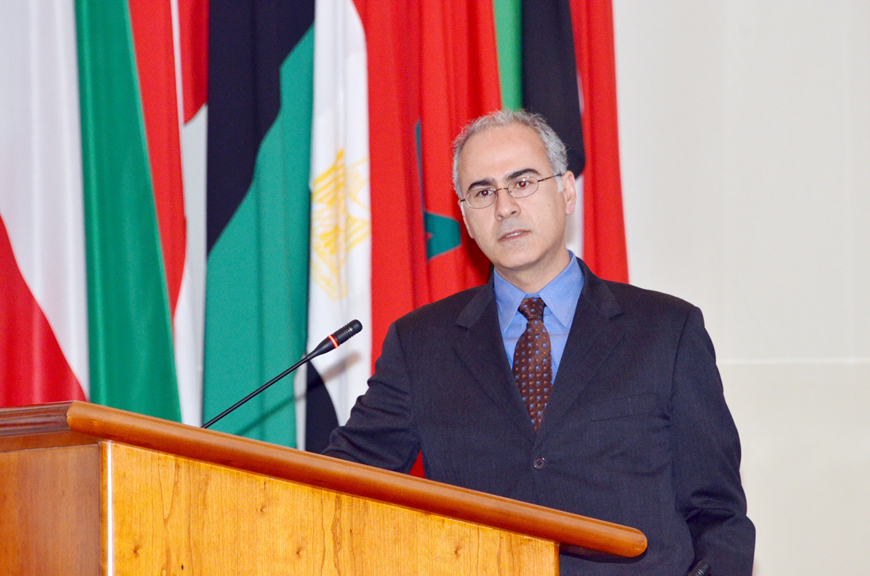Seminars, Webinars, & High-level Events
Symposium on Tax Reform and its Economic Implications
January 25th, 2016

Mario Mansour, Deputy Chief of the Tax Policy Division of the IMF’s Fiscal Affairs Department, explained that GCC countries should consider introducing broad base taxes to mitigate fiscal pressures stemming from low oil prices. Mansour delivered a thought-provoking presentation in a symposium on tax reform and its economic implications in the Arab World organized jointly by the IMF’s Middle East Center for Economics and Finance (CEF) and the Arab Fund for Economic and Social Development (AFESD) on January 25, 2016. CEF Director Oussama Kanaan moderated the panel in which Professor Hanas Cader of the American University of Kuwait took part as a discussant.
In his opening remarks, Kanaan indicated that tax reform has become an increasingly important policy issue for a number of Arab countries amid rising fiscal pressures due to heightened regional conflict, the refugee crisis, and, especially for GCC countries, declining oil prices.
Mansour explained that the sudden decrease in oil revenues put growing pressures on GCC countries to diversify their income base away from oil revenues to ensure financial stability and sustainable economic and social development. He emphasized the urgent need for a tax system that can vary from country to country based on their socioeconomic circumstances. In that regard, Mansour presented tax reform options and pointed to the need to build tax capacity in oil exporting countries. “In addition to the value added tax (VAT), real estate and corporate taxes should be seriously considered by GCC countries” Mansour said.
He noted that property taxes have little adverse impact on economic activity and can be effective in financing municipal budgets. Mansour further indicated that taxing profits of GCC companies is expected to remove discrimination against non-GCC enterprises and broaden the tax base. Drawing on international experience, the discussion identified tax reform challenges and strategies to ensure an equitable tax system conducive to effective revenue generation with enhanced economic efficiency and competitiveness.
